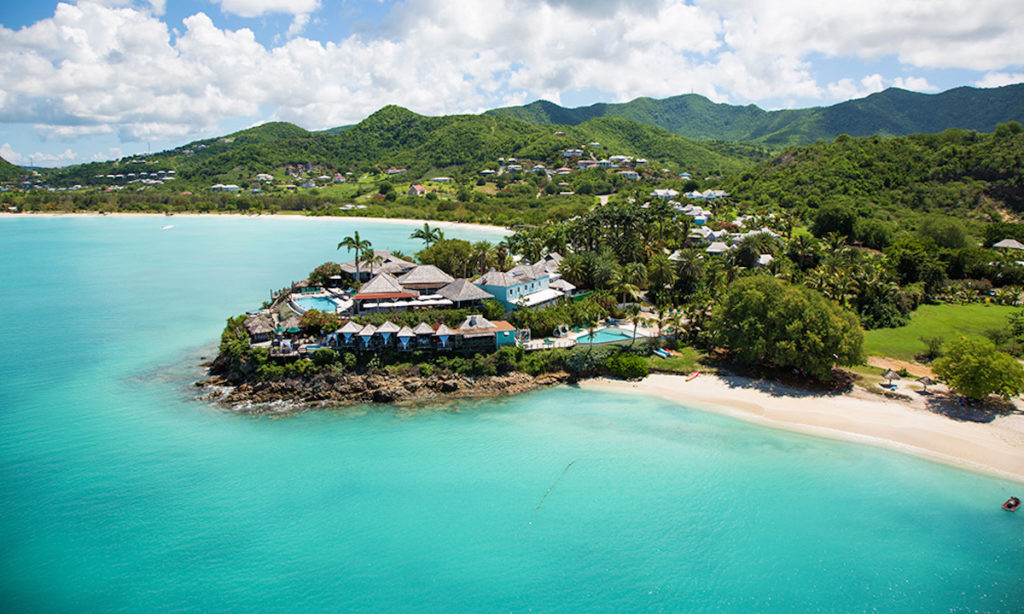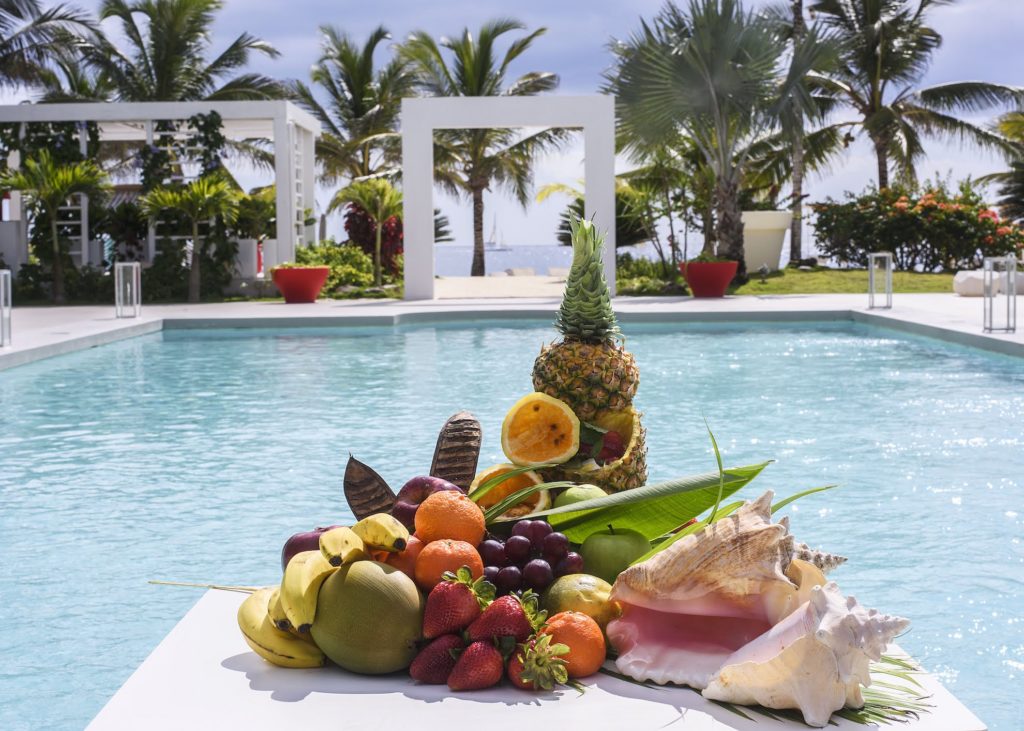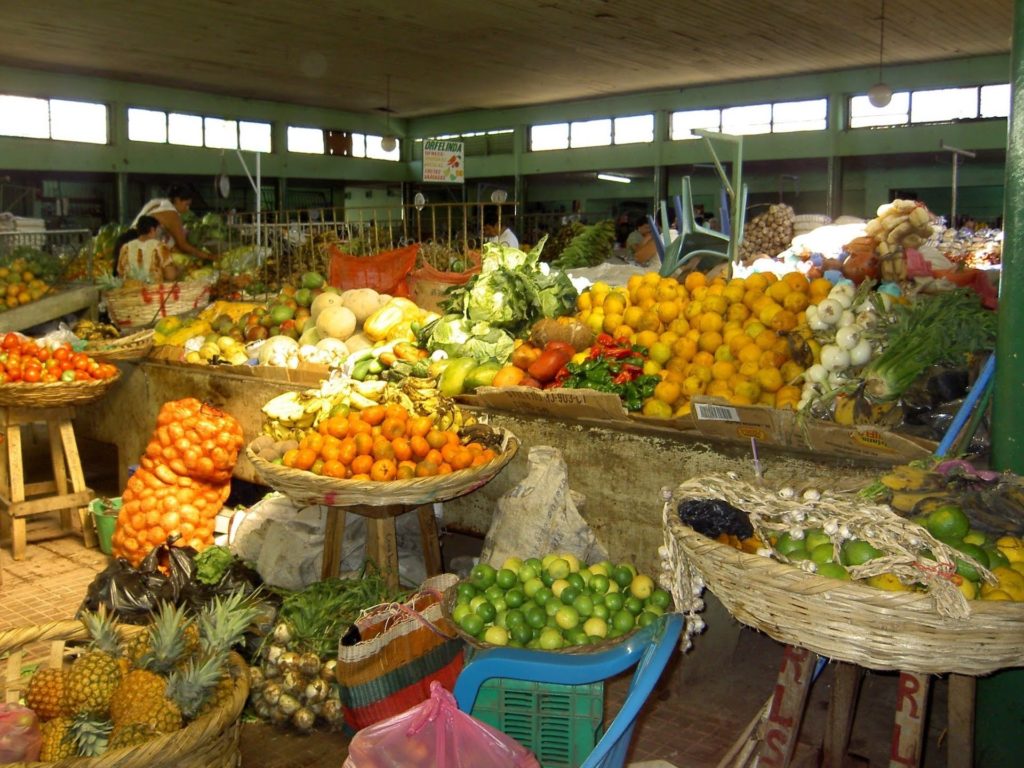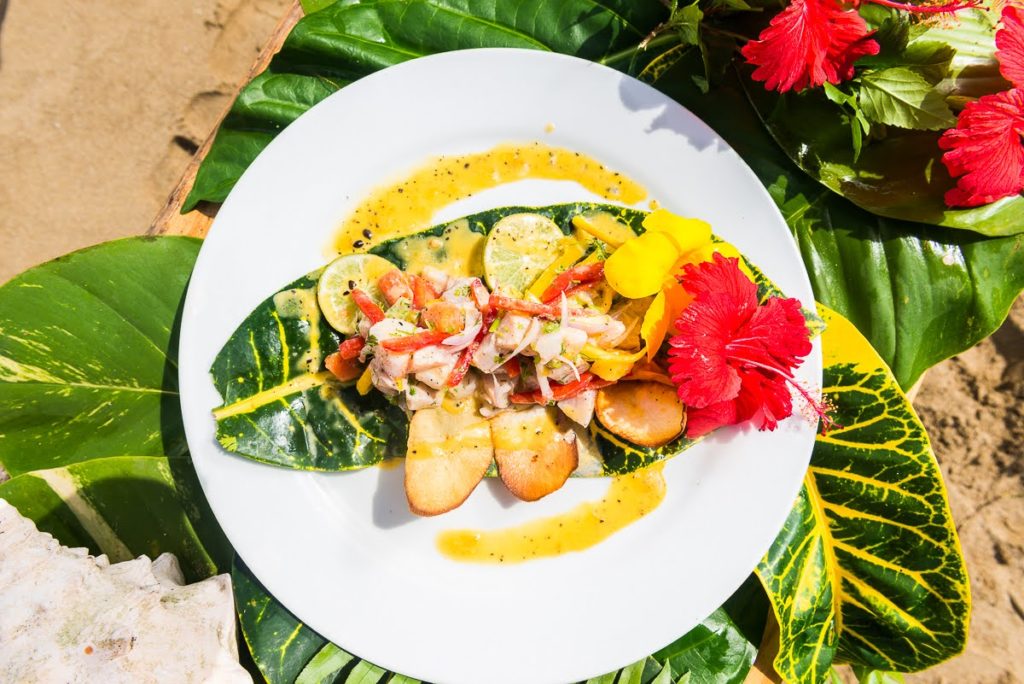
Culture at the Caribbean Dinner Table
The connection between food and culture is an incredibly important one, linking communities and people for centuries. Across the world, coming together to enjoy food is a huge part of social life, and places like Antigua and Barbuda are no different. The Caribbean is well known for its array of spices, seafood and meats that combine to make world-famous dishes.
These eclectic flavours have been combined over generations to become what we know it as today – a truly global offering to suit palettes of all kinds. This has allowed communities to curate recipes reflective of their culture and including indigenous herbs and spices that are celebrated in the area.
“Food is an essential aspect of many family traditions in Caribbean culture. At holidays and special events, it is very common for people to spend many days preparing food.”

One of the most distinct ways to immerse in a new culture is by sampling traditional dishes that have been staples for centuries. Antiguan and Barbadian recipes often included indigenous local seafood such as shrimp and lobster, paired with ginger, garlic and allspice – all of which are harvested around the islands.
Allspice, for example, is used in many sauces, as well as dry rub seasoning on meats such as Jamaican Jerk. The naturally hot climate is perfect to cultivate all the ingredients, such as ginger and cinnamon. Due to many of the resorts being on remote islands, many grow their food themselves or source it locally, all making for an even more authentic experience.
Food bonds the different regions across Antigua and Barbuda, connecting the people to their roots. Visiting these areas you get the chance to immerse yourself in the culture and take away a few lessons learnt from the recipes as well as the people. Below are a handful of resorts across Antigua and Barbuda which pride themselves on producing locally-sourced flavours directly inspired by the Caribbean.
Caribbean Food is Caribbean History
Enslaved Africans brought with them vital knowledge of traditional ingredients and even when given only basic supplies, were able to adapt the ingredients, using their own cooking methods to form the cuisine we have today. It is one of the historical reasons that the “African influence touches virtually every aspect of Caribbean cookery.” But the Caribbean has also been visited by, and is home to so many different types of people from all over the world.
Historically, the Caribbean islands have been owned and fought over for centuries by various imperialist European powers; this includes countries such as Britain, France and Spain. Each “of these cultures, as well as their respective culinary traditions, have played a role in forming the multinational cuisine of the Caribbean as it is nowadays.” The amount of fusion dishes that are embedded in the culture is what makes the Caribbean such a unique region.
For example, macaroni pie originated in England and is now a local delicacy for many destinations across the region. The beef patty is a direct product of colonialism and many of the staples in the Caribbean were also introduced by European countries, such as mangoes originating in Spain.
“The dominant influence of African (especially West African) cookery on the development of Caribbean cuisine is indisputable.”
Caribbean cuisine was formed from many struggles and a turbulent colonial past as enslaved people had to make do with what they had. “This was the birth of the more contemporary Caribbean Cuisine. The African slaves blended the knowledge of spices and vegetables they had brought from their homeland and incorporated them with the precious fruits and vegetables of the Caribbean Islands, as well as other staples to be found in the area.”
In Antigua and Barbuda, the ginger, allspice and cinnamon that grows in abundance, due to the naturally hot climate, have all made their way into dishes and drinks, each becoming incredibly culturally significant.“While not all of these plants are native to the region, their use showcases the cultural blending of the native, Dutch, English, Spanish, and African people who travelled to the Caribbean throughout history.”
If you’re going to be visiting one of the many resorts in the Caribbean, the bold herbs and spices are going to be something you encounter. Recipes that have formed part of the culture and developed over centuries allow visitors to travel back in time. Guests will truly get to know the people, the region, and its history, by getting to know the food. All those who’ve migrated to the Caribbean, whether by force or of their own accord, have influenced the cuisine we see today – one that so easily highlights the complex history of the region.
Those who were enslaved blended their own knowledge of food from their homeland and were able to pair this with indigenous ingredients from around the islands. “This created many one-of-a-kind dishes, because many of the produce on the islands at the time was too fragile to make it through the exportation process” during colonisation.
The importance of supporting local communities in an authentic way and partaking in their own traditions. “Authentic Caribbean cuisine is truly an excellent representation of all the cultural influences the Caribbean Islands have experienced since Christopher Columbus’ landing in the late 1400’s.” Caribbean cuisine is prepared and enjoyed by people from an array of nationalities due to the mixture of French Island and African recipes. Listed below are just a few resorts and hotels in Antigua and Barbuda that offer traditional Caribbean food, some with a twist.
Keyonna beach resort
Keyonna Beach Resort offers its guests dishes that incorporate fresh seafood and locally sourced ingredients. The kitchen’s organic cuisine with a Caribbean twist is prepared with ingredients such as plantain, Eddoe, yams, green banana, fresh coconut and a range of Caribbean staples. Grown by the islanders, the resort constantly tries to source its produce locally and sustainably.
Cocobay resort
At Cocobay Resort’s Rafters restaurant and bar – open for breakfast, lunch and dinner – guests can enjoy an intimate setting and spectacular views of the Caribbean Sea. The restaurant serves an a la carte menu with special options available upon request. Authentic Caribbean cuisine takes precedence here and the restaurant has an adjacent bar where guests can savour cocktails, liquors and wine. The bar serves light bites during the day for guests and live entertainment is on 6 nights a week.

Hermitage Bay
The beachfront restaurant at Hermitage Bay offers guests freshly prepared breakfasts, lunch underneath parasols and evening cocktails as the sun sets. Guests can also enjoy candlelit dinners against the sounds of steel drums, calypso and jazz bands. Produce is sourced from the on site organic garden and prepared by the executive head chef. Seafood is caught fresh and menus change daily, always combining local favourites with modern inspirations.

Dine Around the local area
Exploring Antigua leaves a wide variety of dining options available to indulge in. Turner’s Beach Bar and The Nest at Valley Church Beach offers local seafood and grilled food, while the nearby Jolly Harbour offers a variety of international restaurants, all just a short taxi drive away from the capital city St. John’s. Local roadside vendors also offer unique recipes to try, making for the perfect opportunity to support local businesses during such a trip. The local area has an abundance of places to dine on authentic Caribbean dishes which can be enjoyed while exploring the local sights and sounds.
Locally grown and sourced food is something that makes exploring these places so worthwhile. Given that the country is influenced by so many food traditions, such as Indian food, French island recipes and African flavours, there is bound to be a flavour to suit your palette. The recipes that link back centuries have constantly been evolving, and by getting to know how the Caribbean people prepare and enjoy their food, you can truly get to know the region.
“It's always intriguing learning about different cultures and how to engage within them, and growing up in a household where food is important to be able to connect with heritage, I fully believe that visiting a different country makes for the perfect opportunity to learn about local food and how it has evolved. ”



